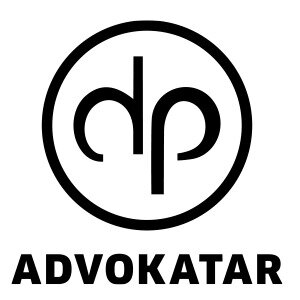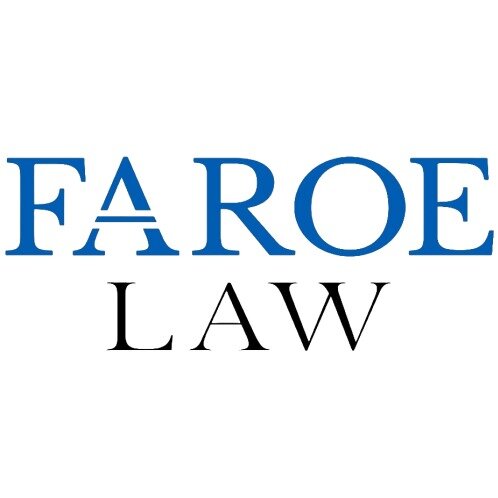Best Restructuring & Insolvency Lawyers in Tórshavn
Share your needs with us, get contacted by law firms.
Free. Takes 2 min.
List of the best lawyers in Tórshavn, Faroe Islands
About Restructuring & Insolvency Law in Tórshavn, Faroe Islands
Restructuring and insolvency law in Tórshavn, Faroe Islands, governs how financially distressed businesses and individuals can resolve debt-related challenges, either by reorganizing their affairs or entering into insolvency processes. As the economic and legal center of the Faroe Islands, Tórshavn is home to many businesses and residents who may face unique financial and legal pressures. The local legal framework is influenced by Danish law, but with specific rules and procedures that apply in the Faroese context. Whether you are a creditor, debtor, or business owner, understanding the basics of this area of law is essential for making informed decisions during financial difficulties.
Why You May Need a Lawyer
You may require legal assistance in restructuring and insolvency scenarios for various reasons. Common situations include facing personal or business bankruptcy, negotiating with creditors, managing complex debt restructuring, or when your company faces financial distress and potential closure. Legal professionals can help protect your rights, guide you through negotiations, ensure compliance with local regulations, and represent you in court or administrative proceedings if necessary. Legal advice is especially important in avoiding personal liability for business debts, preserving assets where possible, and achieving the best outcome in difficult financial situations.
Local Laws Overview
Restructuring and insolvency laws in the Faroe Islands are largely based on Danish law, but with several local amendments. The Faroese Bankruptcy Act outlines the main procedures for bankruptcy, creditor arrangements, and restructuring. In Tórshavn, legal proceedings are typically handled by the local court (Sýslumaðurin), which oversees formal insolvency processes. Both individuals and businesses can enter into either voluntary or court-mandated restructuring agreements. There are also specific rules for distribution of assets, creditor hierarchies, and debtor protections. It is crucial to be aware of the time limits for filing for insolvency and the obligations to file when insolvent, as failing to do so may result in personal liability for company directors or managers.
Frequently Asked Questions
What is insolvency in the Faroe Islands?
Insolvency refers to the financial state where an individual or business cannot pay debts as they fall due. The law provides for structured legal processes, including bankruptcy and restructuring, to resolve insolvency and maximize returns to creditors.
Who can file for bankruptcy in Tórshavn?
Both individuals and companies can file for bankruptcy in Tórshavn. In most cases, proceedings are initiated either by the debtor or by one or more creditors through the local court.
What is a restructuring arrangement?
A restructuring arrangement is a legal agreement between a debtor and creditors to reorganize debt payments, often to avoid bankruptcy. This can include debt reduction, extended payment terms, or other modifications.
How long does the bankruptcy process take?
The timelines vary depending on the complexity of the case and the number of creditors involved. Simple bankruptcy cases may be resolved within a few months, while more complex matters can take a year or more.
Does filing for bankruptcy affect personal assets?
For individual bankruptcies, personal assets are typically used to satisfy debts, except for certain protected assets. For businesses, the company’s assets are liquidated, but directors may be held personally liable in cases of misconduct.
Can creditors force an individual or a business into bankruptcy?
Yes, creditors in Tórshavn can petition the court to declare a debtor bankrupt if payment obligations are not met and insolvency is evident.
Are there alternatives to bankruptcy?
Yes, alternatives include voluntary restructuring agreements, out-of-court settlements, and private negotiations with creditors to avoid entering formal insolvency proceedings.
What are the main duties of directors during financial distress?
Directors must act in the best interests of creditors when insolvency is likely. This includes avoiding preferential treatment of creditors and ensuring that insolvency filings are made in accordance with statutory obligations.
Will insolvency be made public?
Most formal insolvency proceedings are a matter of public record in the Faroe Islands. Creditors and interested parties are notified, and outcomes are typically published.
Do I need a lawyer for insolvency proceedings?
While not strictly required, legal advice is highly recommended to navigate the complex processes, protect your rights, and ensure compliance with local laws.
Additional Resources
If you need more information or assistance, you may find the following resources helpful:
- Sýslumaðurin (The Local District Court): Handles bankruptcy and insolvency cases in Tórshavn.
- Faroese Chamber of Commerce: Provides general guidance and resources for businesses in financial difficulty.
- Legal Aid Organizations: Offer advice or representation for individuals who cannot afford a lawyer.
- Certified Public Accountants and Advisors: Professionals who can support restructuring plans and financial analysis.
- Ministry of Trade and Industry: Oversees business regulations in the Faroe Islands, including matters relating to insolvency.
Next Steps
If you are experiencing financial distress or need advice on restructuring or insolvency in Tórshavn, start by gathering all relevant financial documentation and a summary of your situation. Consider consulting a legal professional with experience in Faroese insolvency law to understand your options. Acting early can help preserve more assets and give more options for resolving debts, so do not delay in seeking advice. A local legal expert can also represent your interests in negotiations, court proceedings, and ensure all filings comply with the law.
Lawzana helps you find the best lawyers and law firms in Tórshavn through a curated and pre-screened list of qualified legal professionals. Our platform offers rankings and detailed profiles of attorneys and law firms, allowing you to compare based on practice areas, including Restructuring & Insolvency, experience, and client feedback.
Each profile includes a description of the firm's areas of practice, client reviews, team members and partners, year of establishment, spoken languages, office locations, contact information, social media presence, and any published articles or resources. Most firms on our platform speak English and are experienced in both local and international legal matters.
Get a quote from top-rated law firms in Tórshavn, Faroe Islands — quickly, securely, and without unnecessary hassle.
Disclaimer:
The information provided on this page is for general informational purposes only and does not constitute legal advice. While we strive to ensure the accuracy and relevance of the content, legal information may change over time, and interpretations of the law can vary. You should always consult with a qualified legal professional for advice specific to your situation.
We disclaim all liability for actions taken or not taken based on the content of this page. If you believe any information is incorrect or outdated, please contact us, and we will review and update it where appropriate.













